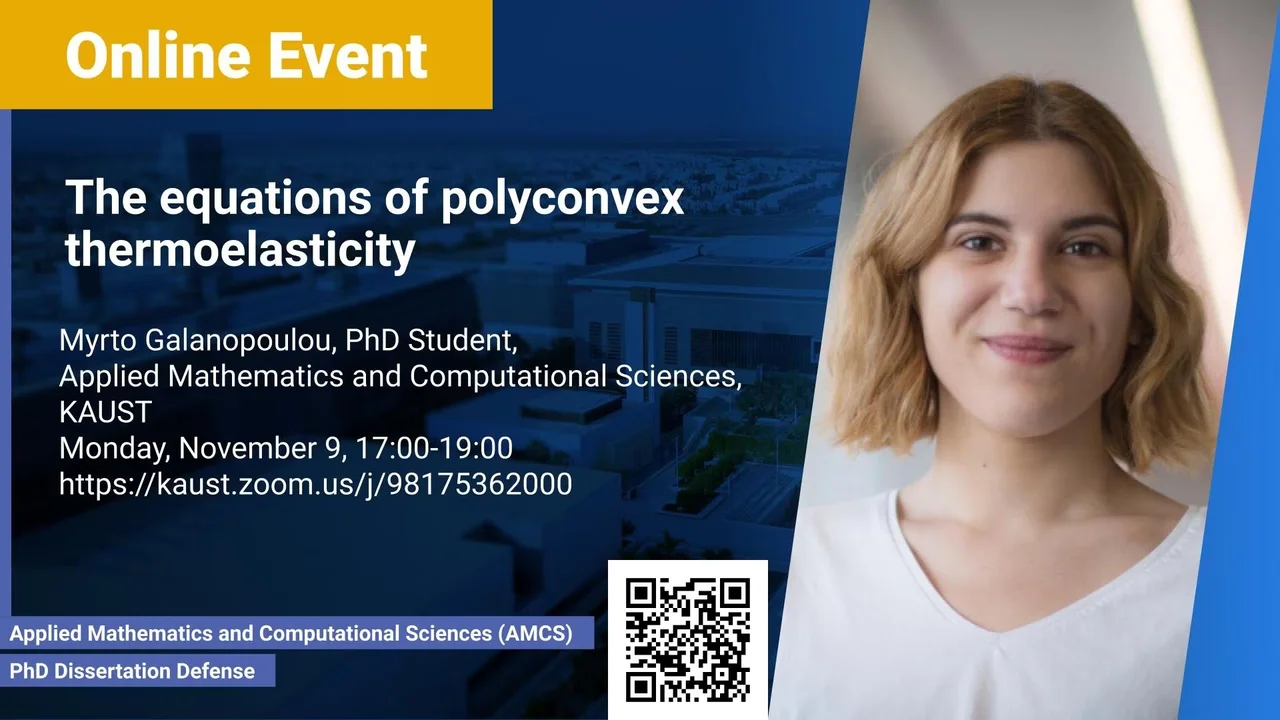
The equations of polyconvex thermoelasticity
In my thesis, I consider the system of thermoelasticity endowed with polyconvex energy. After presenting the equations in their mathematical and physical context, I embed the equations of polyconvex thermoviscoelasticity into an augmented, symmetrizable, hyperbolic system which possesses a convex entropy. This allows to prove many important stability results, such as convergence from thermoviscoelasticity (with Newtonian viscosity and Fourier heat conduction) to smooth solutions of the system of adiabatic thermoelasticity, and convergence from thermoviscoelasticity to smooth solutions of thermoelasticity in the zero-viscosity limit. In addition, I establish a weak-strong uniqueness result in the class of entropy weak solutions and in a suitable class of measure-valued solutions, defined by means of generalized Young measures that describe both oscillatory and concentration effects. Also, I construct a variational scheme for isentropic processes of adiabatic polyconvex thermoelasticity: I establish existence of minimizers which converge to a measure-valued solution that dissipates the total energy, while the scheme converges when the limiting solution is smooth.
Overview
Abstract
I will consider the system of thermoelasticity endowed with polyconvex energy. In the Introduction, after presenting the equations in their mathematical and physical context, I explain the relevant research in the area and the contributions of this work. In Chapter 2 I embed the equations of polyconvex thermoviscoelasticity into an augmented, symmetrizable, hyperbolic system which possesses a convex entropy. Using the relative entropy method in the extended variables, in Chapter 4, I show convergence from thermoviscoelasticity with Newtonian viscosity and Fourier heat conduction to smooth solutions of the system of adiabatic thermoelasticity as both parameters tend to zero and convergence from thermoviscoelasticity to smooth solutions of thermoelasticity in the zero-viscosity limit. In addition, I establish a weak-strong uniqueness result for the equations of adiabatic thermoelasticity in the class of entropy weak solutions. In Chapter 5, I prove a measure-valued versus strong uniqueness result for adiabatic polyconvex thermoelasticity in a suitable class of measure-valued solutions, defined by means of generalized Young measures that describe both oscillatory and concentration effects. Instead of working directly with the extended variables, I will look at the parent system in the original variables utilizing the weak stability properties of certain transport-stretching identities, which allow to carry out the calculations by placing minimal regularity assumptions in the energy framework. In Chapter 6, I construct a variational scheme for isentropic processes of adiabatic polyconvex thermoelasticity. I establish existence of minimizers which converge to a measure-valued solution that dissipates the total energy. Also, I prove that the scheme converges when the limiting solution is smooth. Finally for completeness, in Chapter 3, I present the well-established theory for local existence of classical solutions and how it applies to the equations at hand.
Brief Biography
Myrto Galanopoulou is a Ph.D. candidate working in the group of Athanasios Tzavaras. with research interests in the areas of Mathematical Analysis and Applications, Partial Differential Equations, and Conservation laws. During her Ph.D. studies, she examined the system of thermoelasticity with polyconvex energy and produced many novel results on stability and uniqueness of solutions.
